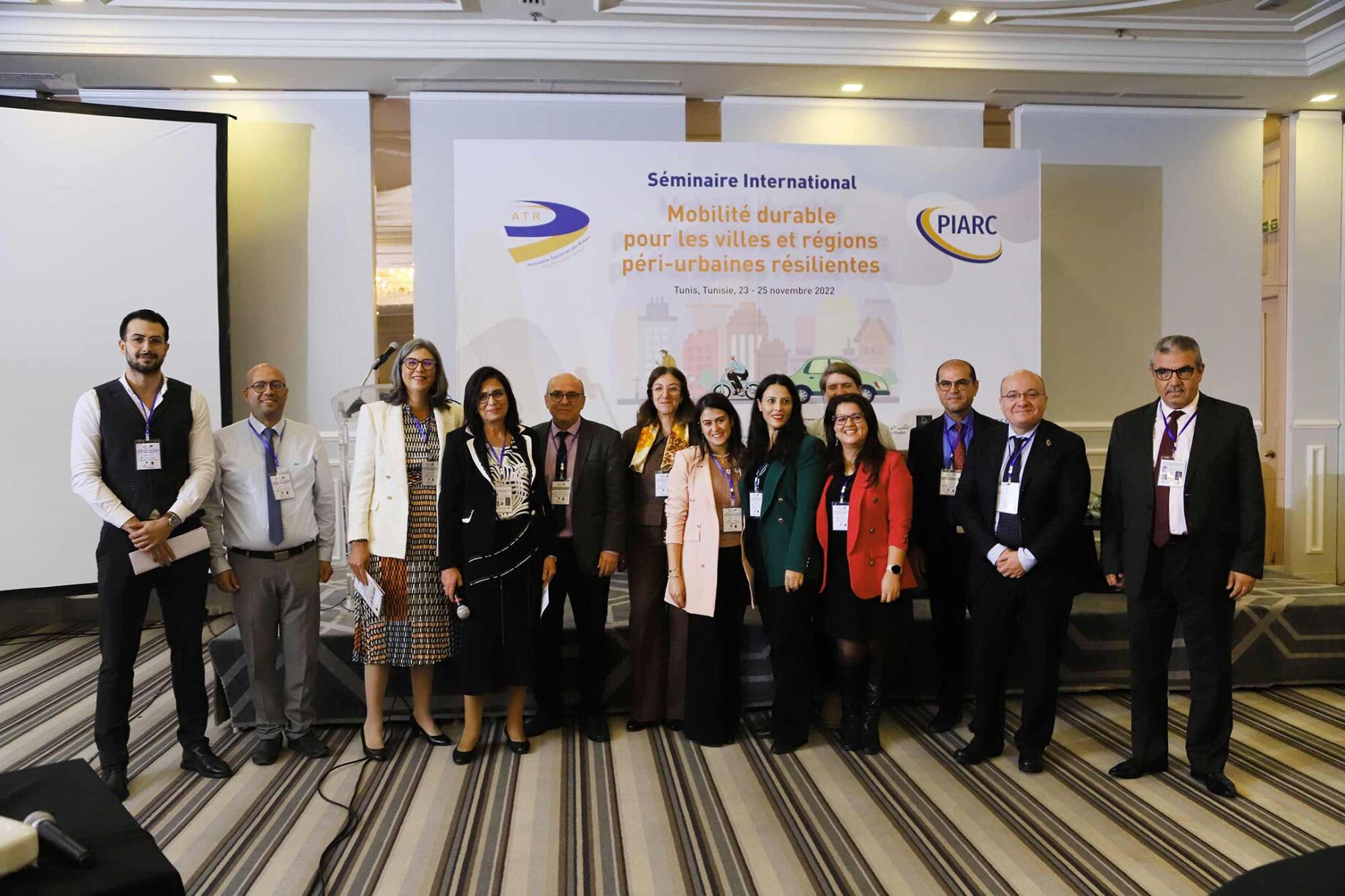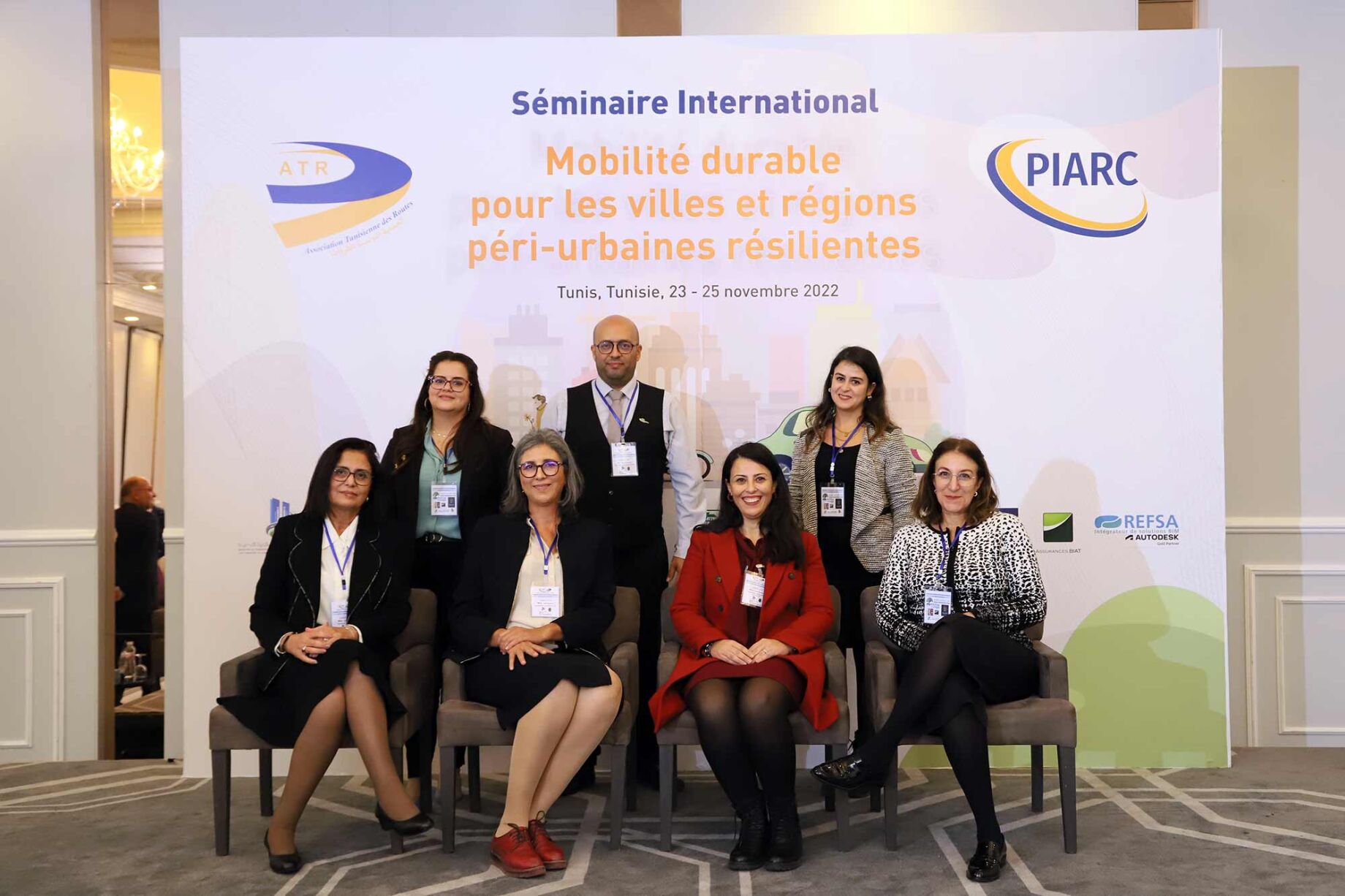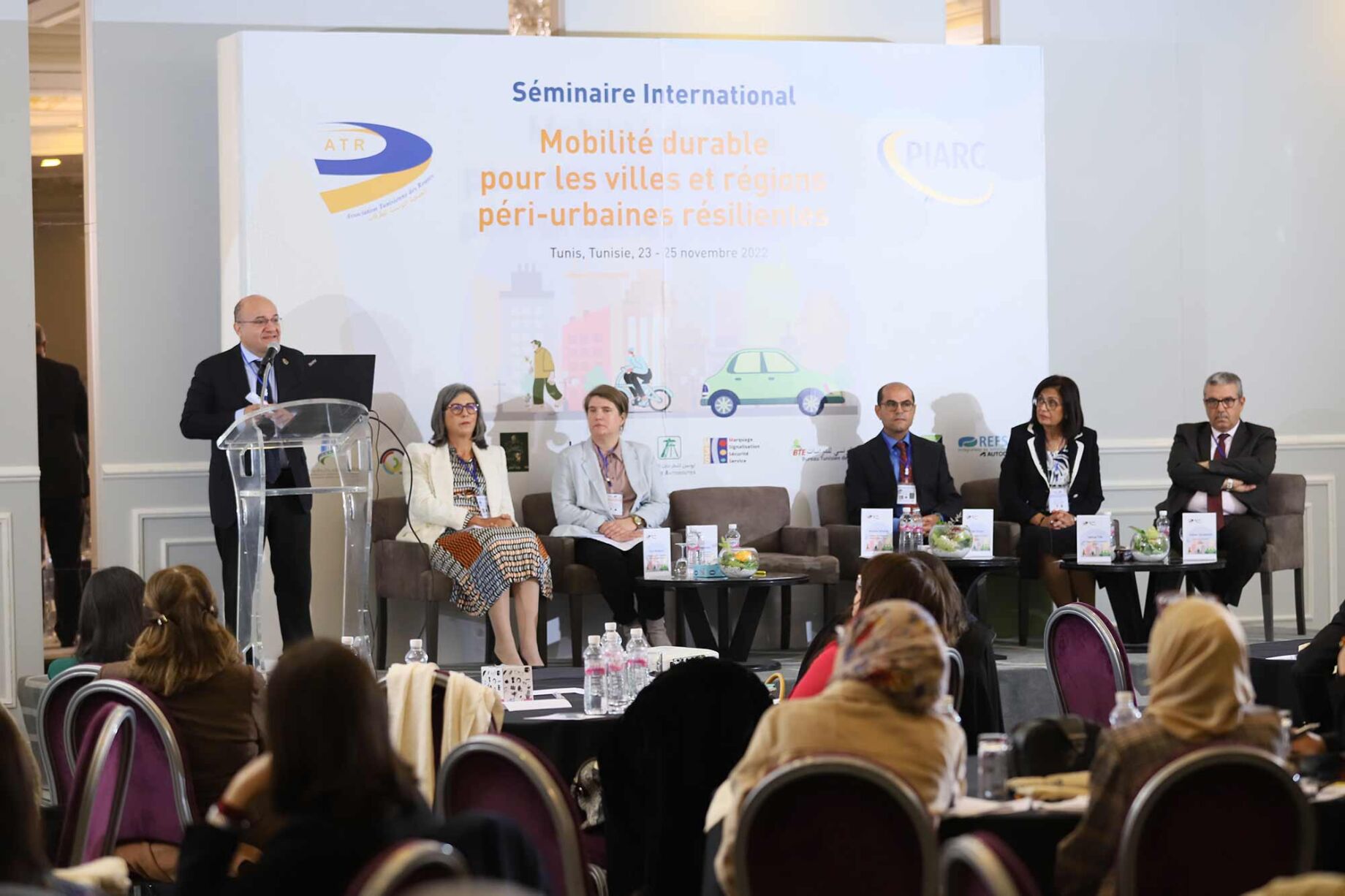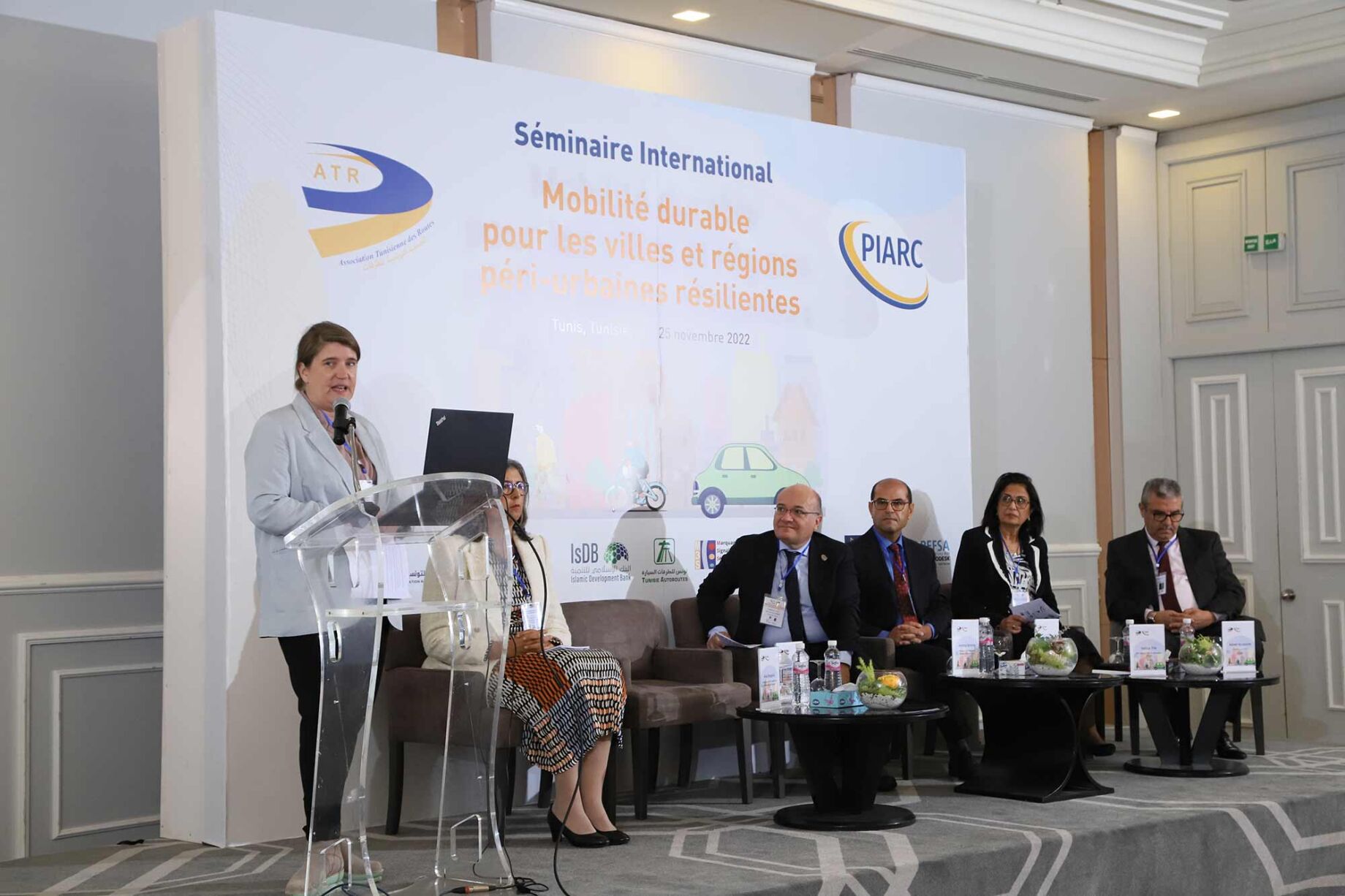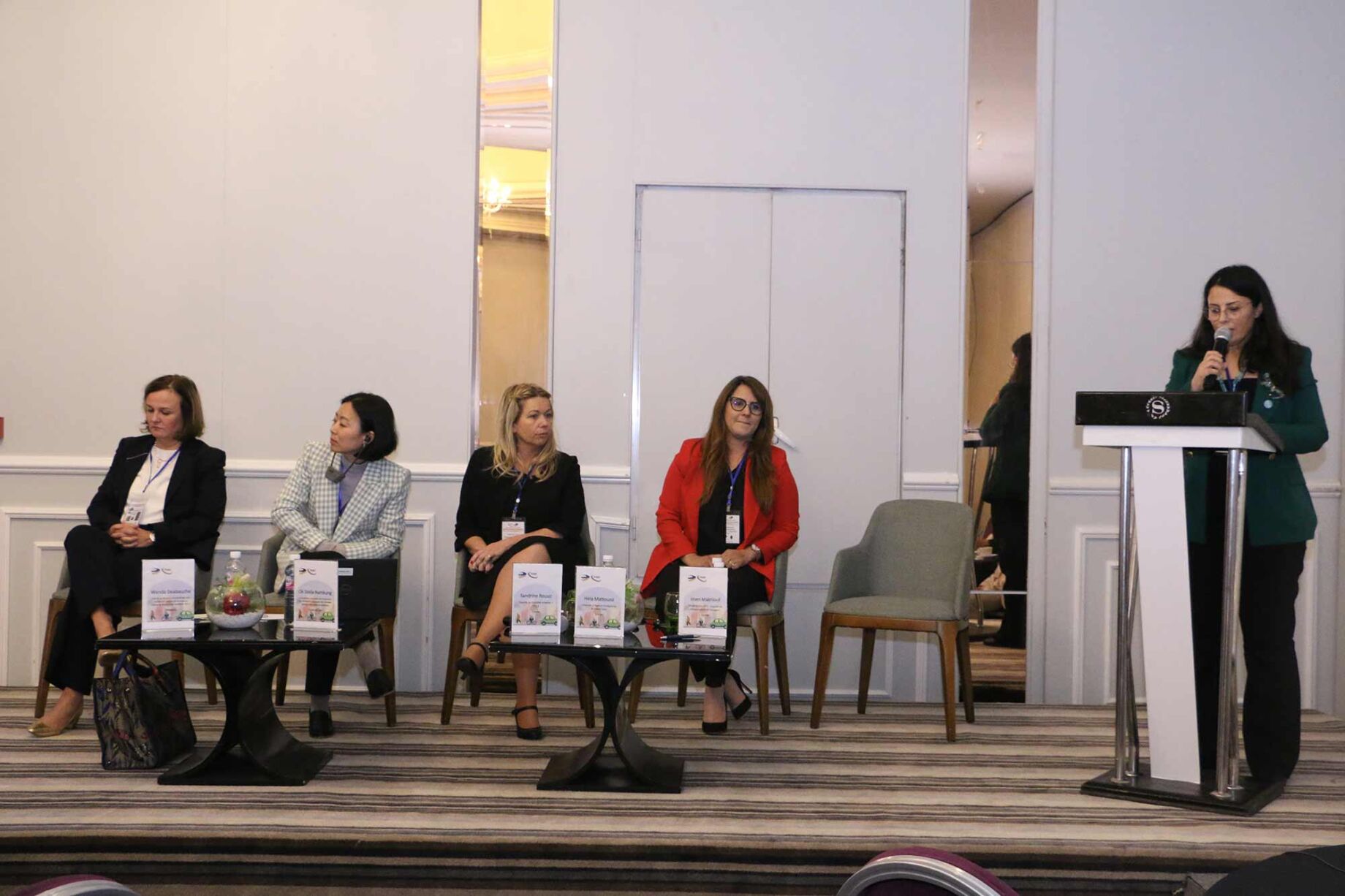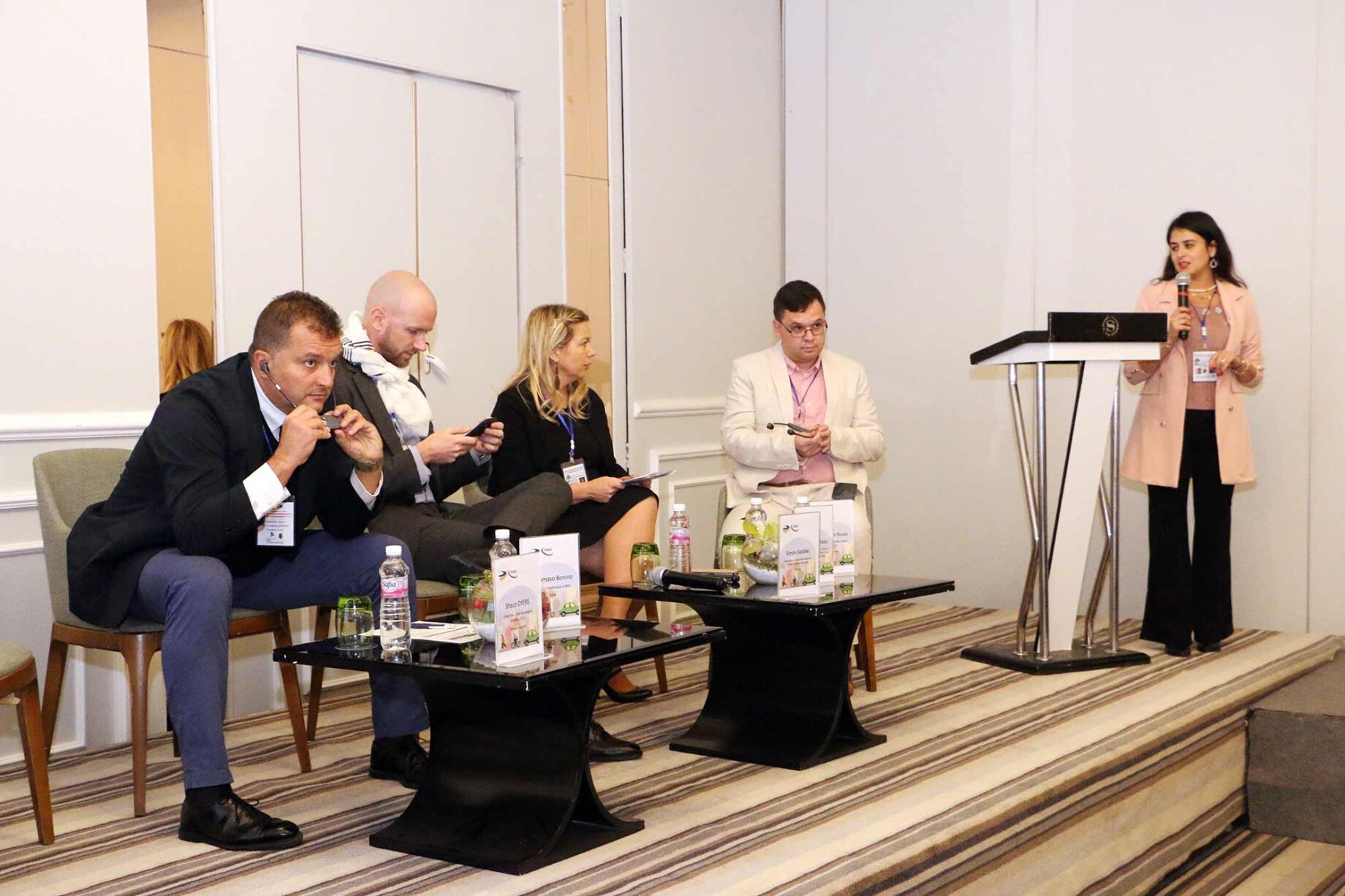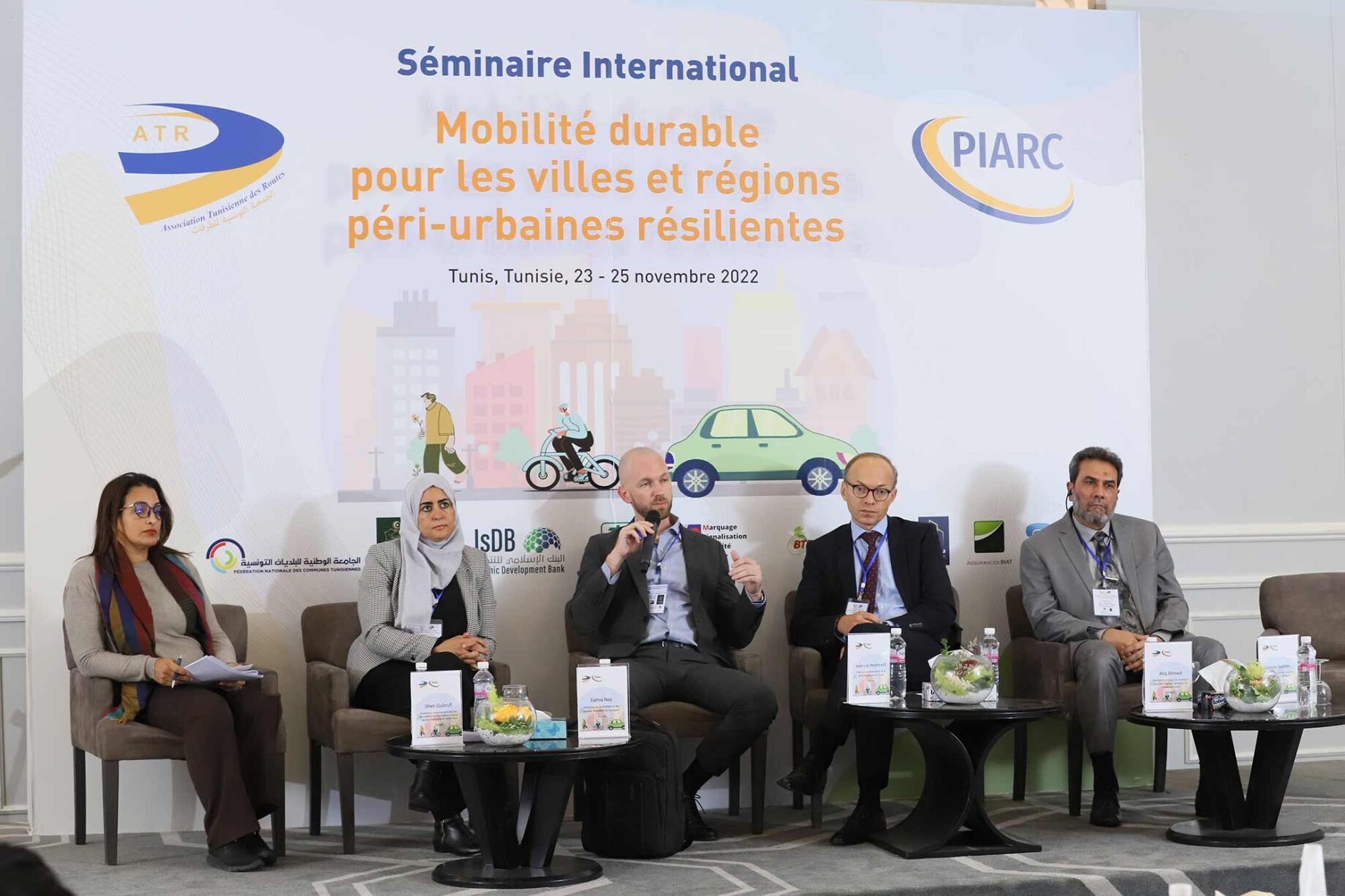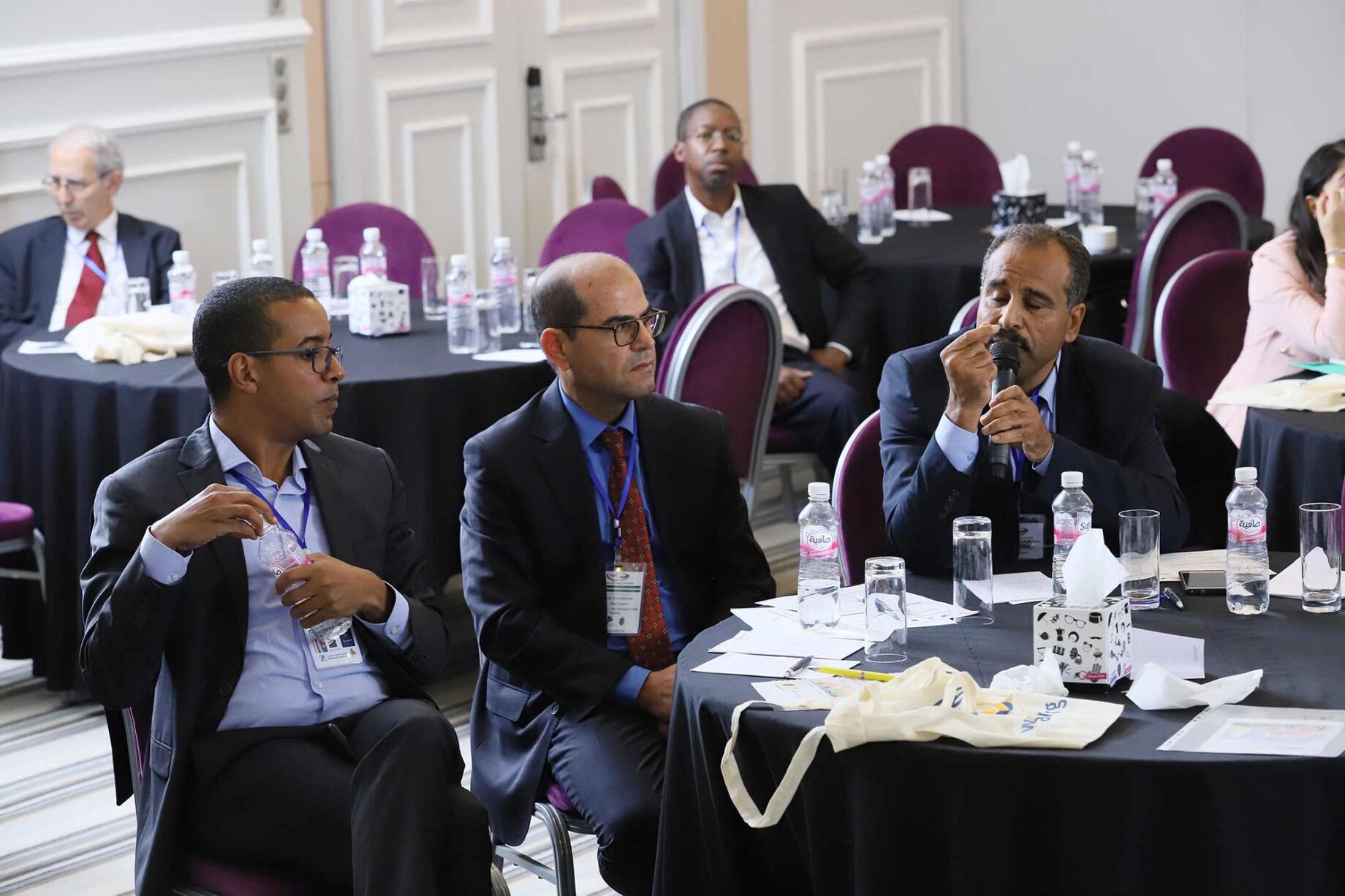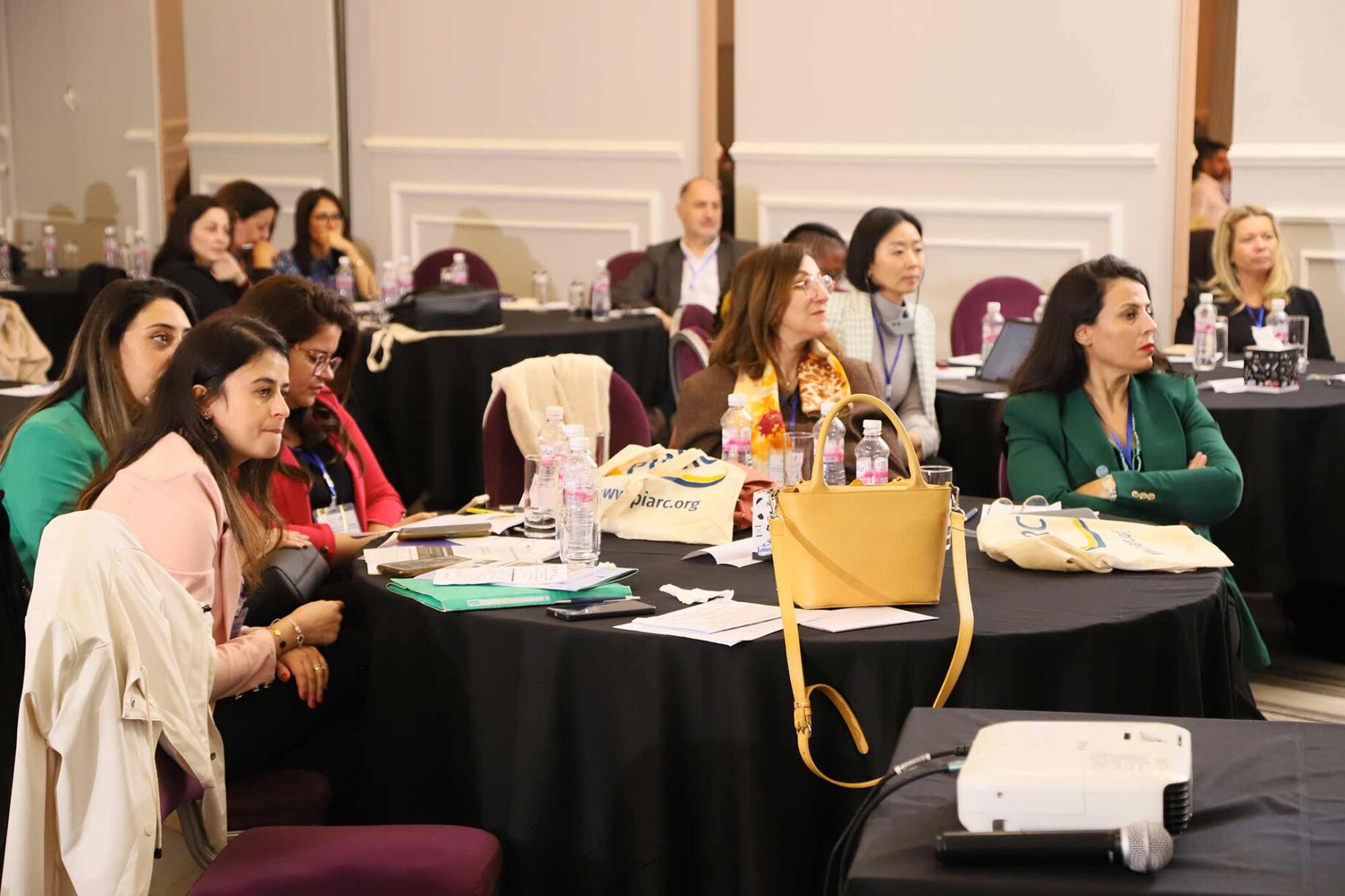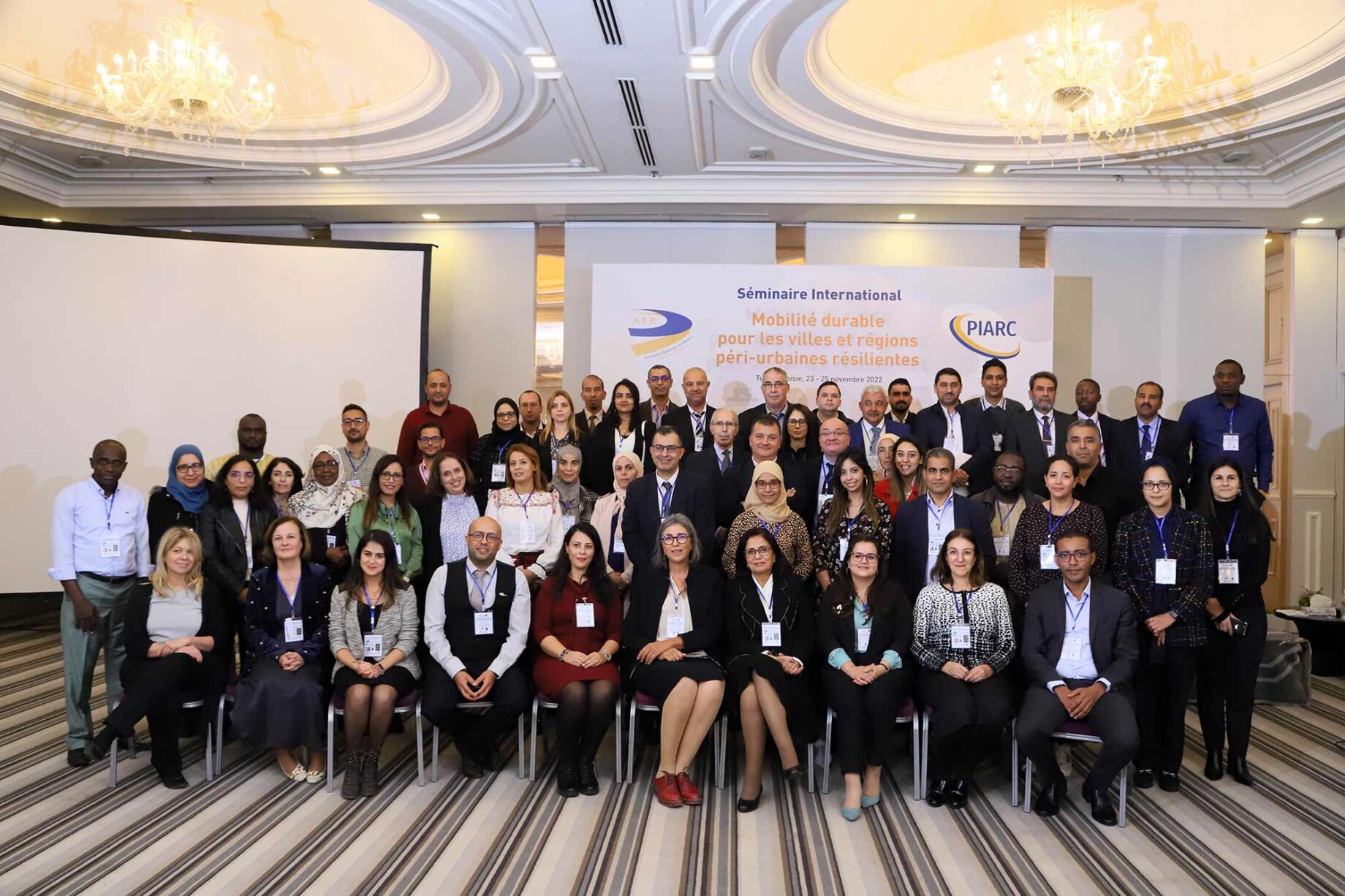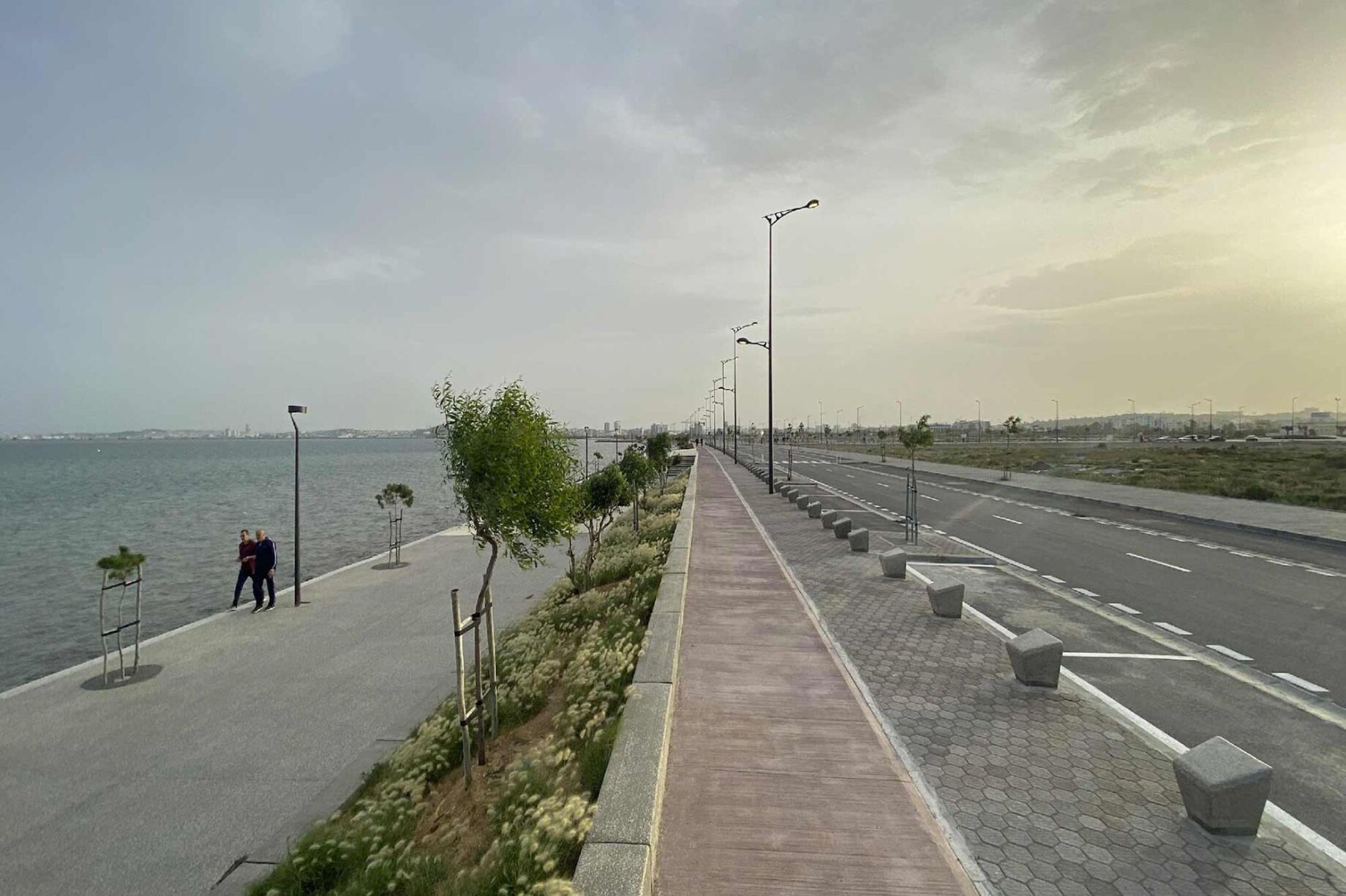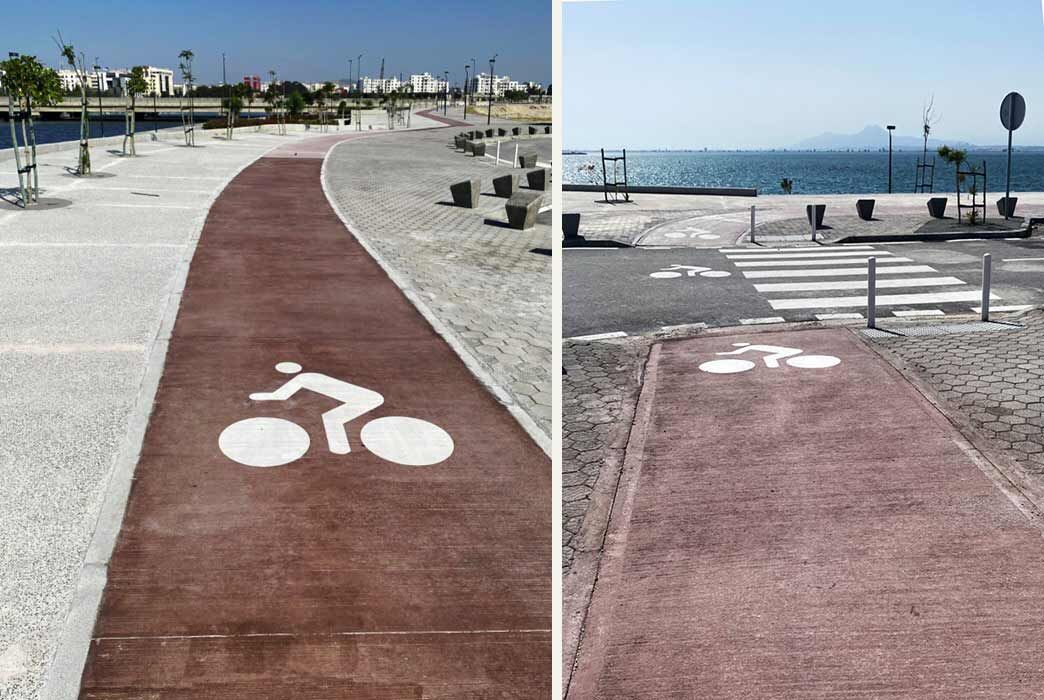International Seminar "Sustainable Mobility for Resilient Cities and Peri-Urban Regions"
23-25 November 2022, Tunis (Tunisia)
The international seminar was jointly organized by the Tunisian Association of Roads (ATR), the Ministry of Equipment and Housing (MEH), the Ministry of Transport (MT), the National Federation of Tunisian Communes (FNCT) and PIARC Technical Committee 2.1 "Mobility in Urban Areas". This seminar was organized to share the insights gained and various solutions to improve urban mobility taking into account the specific character of each city: financial, logistic, existing networks, strategies already in place, etc.
Preparatory documents for the Seminar
Objectives of the Seminar
With urban sprawl, the demand for mobility is increasing, leading to congestion, pollution and degradation of the quality of life in cities, which is becoming a public policy issue. Public transportation is one of the solutions to reduce the excessive use of cars.
The Covid-19 pandemic and repeated lockdowns had a positive effect on congestion in cities - roads emptied and people rediscovered walking and cycling. This reduction in the number of cars on the road led to a sharp drop in pollution. With the return of cars and the lack of appropriate facilities, cycling in cities can seem dangerous due to the dominance of cars. Nevertheless, this change in experience with active travel - cycling and walking - has left its mark and seems to have been greatly appreciated.
With this in mind, this seminar was organized to share the insights gained and various solutions to improve urban mobility taking into account the specific character of each city: financial, logistic, existing networks, strategies already in place, etc.
Course of the Seminar
The seminar was divided into eight technical sessions, integrating several topics into the program - as summarised below. The technical sessions were organized across the two days of the seminar and each technical session included several presentations from members of Technical Committee TC 2.1 alongside Tunisian and international experts. At the end of each technical session, the different themes included in the presentations were discussed.
The languages used in the seminar were French and English with simultaneous translation.
For theeight technical sessions, there were 8 moderators: 3 Men and 5 Women, 3 from the technical committee TC2.1 "Mobility in urban areas", 3 from the Tunisian Roads Association and 2 guests from MEH and AUGT.
| International Seminar Proceedings - 23-25 November 2022 Sustainable Mobility for Resilient Cities and Peri-Urban Regions (Mostly in French) |
|---|
Day 1 - 23 November
08:30 - 09:30 | Welcome and Registration of Participants | |
09:30 - 10:30 | Opening session | |
| ||
10:30 - 11:00 | Tea/Coffee break | |
11:00 - 13:00 | Technical Session 1 - Road network and urban mobility: global situation and challenges Moderator : Riadh Hentati (Tunisia)
| |
13:00 - 14:30 | Lunch | |
Room 1 | Room 2 | |
14:30 - 16:00 | Technical Session 2 - Public transit - alternative to the solo car. Appropriate facilities for public transport (suburban) Moderator : Shaun Dyers (South Africa)
| Technical Session 3 - Sustainable urban mobility: public health and decarbonization Moderator: Wanda Deabauche (Belgium)
|
16:00 - 16:15 | Tea/Coffee break | |
16:15 - 17:30 | Technical Session 4 - Innovative and active travel modes and cohabitation with motorized traffic Moderator : Imen Makhlouf (Tunisia)
| Technical Session 5 - Governance & Financing of urban mobility Moderator: Jihen Guiloufi (Tunisia)
|
Day 2 - 24 November
09:00 - 11:00 | Technical Session 6 - Safe and welcoming school zone (or other public facilities) Moderator : Saloua Triki (Tunisia)
| |
11:00 - 11:20 | Tea/Coffee breal | |
11:20 - 13:00 | Technical Session 7 - Urban mobility and travel safety Moderator : Kaouther Machta (Tunisia)
| |
13:00 - 14:30 | Lunch | |
14:30 - 15:30 | Technical Session 8 - The future of urban mobility Moderator : Tommaso Bonino (Italy)
| |
16:00 - 16:15 | Tea/Coffee break | |
16:15 - 17:15 | Closing of the seminar - Technical conclusions of the seminar | |
19:00 | Gala dinner | |
Day 3 - 25 November
9:00 - 12:00 | Guided technical visit of the "Perle du Lac" housing estate | |
More than 40 people participated in the technical visit. Landscape architect Ms. Nawel Laroui showed us around and presented the components of the recently developed "Perle du Lac" subdivision. This project integrated in its design resilient urban mobility by installing broad sidewalks, cycle tracks and landscaping resulting in a more pleasant living environment along the water level "the Lake of Tunis".
Conclusions of the Seminar
A programme for the Technical Sessions was planned and agreed in advance, with the sessions taking place from 9:00 am to 5:30 pm. Two speakers missed the seminar, although they had sent their presentations, for professional reasons - representing 2 out of 33 presentations during the eight technical sessions.
The Minister of Equipment and Housing was unfortunately unable to attend the inaugural session due to other high-level commitments, as was the Minister of Transport for the closing session.
- The opening session focused on welcoming and introducing the objectives of the seminar; Ms. Lina Granlund from the World Road Association PIARC General Secretariat spoke on "Gender Inclusion in the Road Sector".
- The 1st Technical Session focused on the road network and urban mobility: global situation and challenges. The session considered the integration of public transport networks in large cities along with the challenges, opportunities and modernization of urban mobility. It included a presentation of the main urban road network in large cities in developing countries, and ended with urban mobility as a lever of integrated planning.
- The 2nd Technical Session focused on collective transport - as an alternative to the solo car and the appropriate facilities for collective transport (peri-urban). The session included a presentation on the experience of Bologna in Italy for a resilient urban mobility. The presentation on the program of transport policies in Africa (SSATP) focused on the prospects of reforms and integration of artisanal transport services on the African continent. The session finished with examples of the appropriate facilities needed to develop public transport to make it advantageous to the individual car.
- The 3rd Technical Session focused on sustainable urban mobility and its influence on public health, and decarbonization for a better air quality and a healthier urban environment. A key “take away” from the session was that improving public transport, land use and traffic management is a way to decarbonize cities. In order to face climate change, to achieve these goals it is imperative to review integrated urban planning by providing more space for active modes of travel and reducing the mechanized mode.
- The 4th Technical Session, presented innovative and active modes of travel and their cohabitation with motorized traffic. It approached the promotion of the use of active modes in traffic plans through the development of cycle lanes, which requires the optimization and review of shared public spaces; it also included examples of successful experiences encouraging citizens to use cycles.
- The 5th Technical Session, marked by the presence of the 3 donors, addressed the governance and financing of urban mobility for a new model of urban mobility as well as the main challenges of financing urban mobility and the constraints to attracting private sector investment. The financing and governance of urban mobility requires an institutional framework to organize public transport in African cities.
- The 6th Technical Session presented safe and welcoming designs around school areas and other public institutions providing access to people with reduced mobility. Examples were presented on how to make the space safe for children by calming down the surroundings of schools and supporting sustainable mobility. In African cities it is imperative to start reviewing the requalification of urban roads in favor of active modes of travel.
- The 7th Technical Session approached urban mobility and travel safety. Urban road safety audits will be conducted which favour active modes - cycling and walking safety. The experience of the city of Dakar for a Bus Rapid Transit "BRT" may be a solution to improve road safety. Infrastructure projects financed by the EIB and other donors look very closely at urban mobility and require road safety to be considered in their projects.
- The 8th Technical Session talked about the future of urban mobility by setting up an observatory of sustainable urban mobility and the organization of urban travel plans of cities. The introduction of autonomous or intelligent vehicles could improve urban mobility and road safety; also the interconnection of BIM and GIS could help engineering for the design of innovative developments and enable their success.
